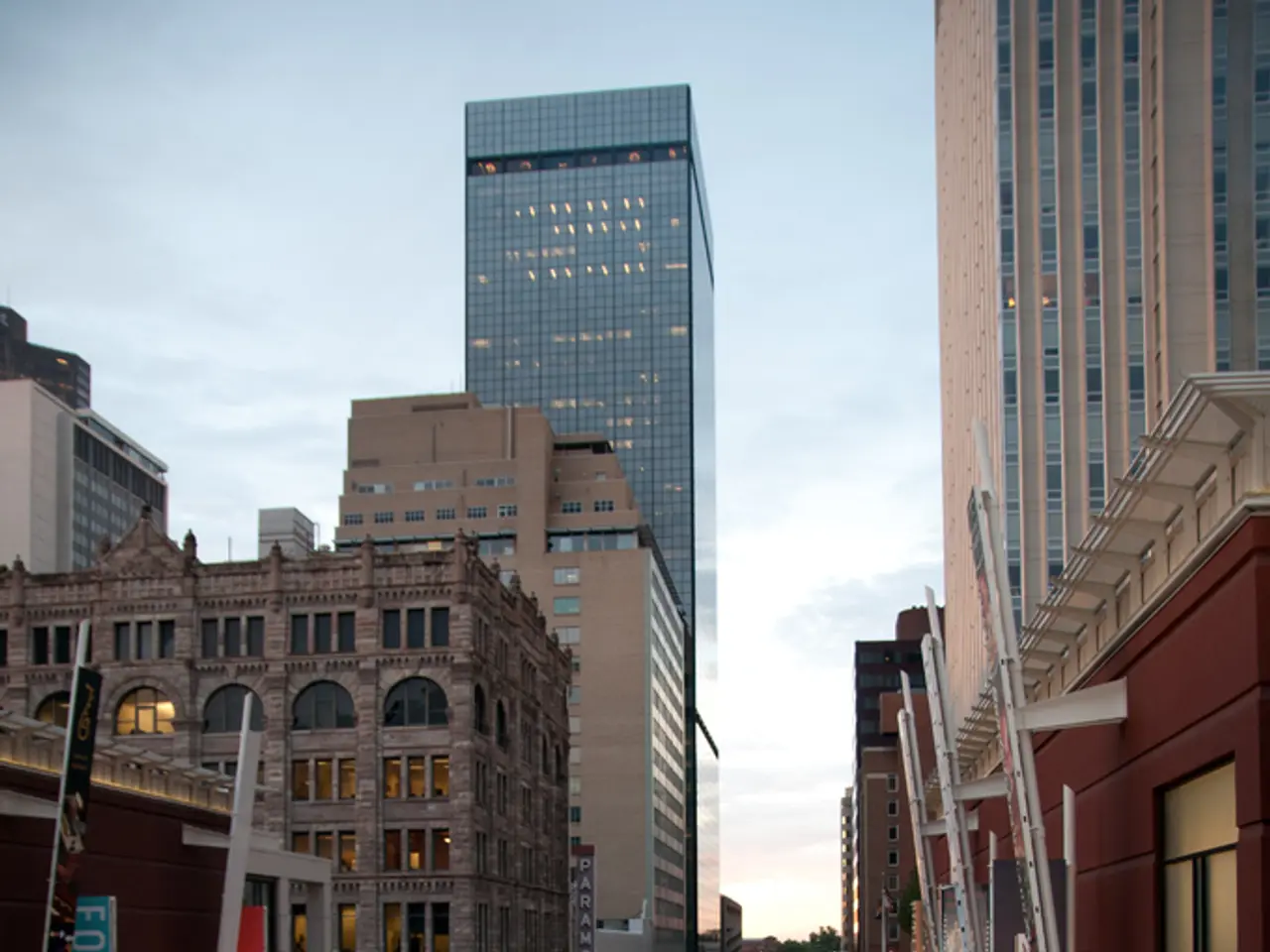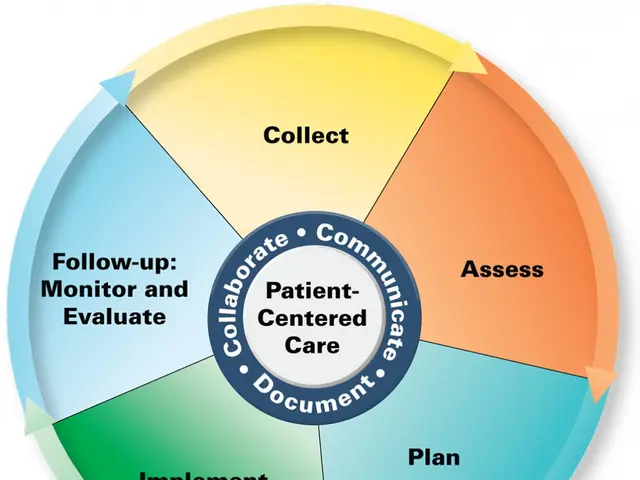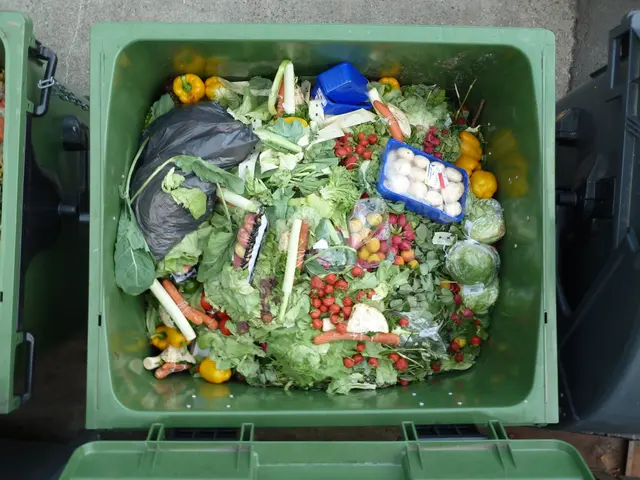Joby Aviation Outlines Ambitious Strategy to Transform Car Travel into Airborne Journeys at High Speeds
In the near future, mass-scale flying machines like Joby Aviation's electric air taxis will revolutionise urban transportation. These innovative vehicles, designed for short, high-value routes, are poised to bypass traditional ground traffic congestion by utilising vertiports—dedicated small-scale hubs accessible by foot, bicycle, or rideshare.
The introduction of vertiports will necessitate significant adaptations in urban infrastructure. Cities will need to design and build these hubs in strategic urban locations, such as near airports or major business districts, enabling quick connection points. Safety, accessibility, and environmental consciousness will be key considerations, with noise reduction features being particularly important due to the minimal noise produced by Joby’s eVTOL aircraft at typical urban flight altitudes (around 1,000 feet).
Air traffic control systems and regulatory frameworks will also require adaptation to manage large numbers of small eVTOL vehicles in urban airspace. This is currently a challenge under FAA certification review, with strict safety and reliability evaluations ongoing.
Public acceptance will be shaped by various factors. The promise of dramatically reduced travel times, such as cutting LAX-to-downtown journeys to minutes, could boost public enthusiasm for adoption. However, concerns over safety, noise, affordability, and privacy will need careful public engagement and transparency as these technologies scale from pilot production to widespread use. Early demonstrations close to major events, such as the 2028 LA Olympics, may help normalise flying taxis as part of urban travel culture.
Joby Aviation's industrialisation of flying cars is a significant milestone, marking the start of something big in the eVTOL market. The company's aircraft are real, and its timelines are aggressive, but adoption will depend on various factors such as pricing models, safety standards, public perception, and noise tolerance.
In partnership with Dubai's Roads and Transport Authority, Joby Aviation is preparing for passenger operations as early as 2026. The company has secured Dubai as its launch customer, granting it exclusive air taxi rights for six years. Dubai's Roads and Transport Authority sees Joby Aviation's air taxis as a premium service for residents and visitors seeking fast, seamless mobility between key parts of the city.
Joby Aviation's Marina facility in California, spanning over 435,000 square feet, produces aircraft components using 3D printing, data-driven quality control, and a team trained in part by Toyota engineers. The facility houses simulators for pilot training, ground testing areas, and FAA-certification labs. Currently, Joby Aviation is producing two aircraft a month and plans to produce six this year, with the potential for hundreds soon.
In addition to its California facility, Joby Aviation is preparing to build 500 aircraft per year in Dayton, Ohio, supported by state grants and a growing Midwestern advanced manufacturing workforce. The cost of Joby Aviation's aircraft, with limited seating, piloted flights, and significant regulatory costs, is likely to make them initially accessible only to CEOs, tourists, and the ultra-wealthy, not average daily commuters.
As the eVTOL market matures, it could potentially relieve urban congestion and create scalable new forms of public transit. However, the answers about the potential impact on access, equity, and infrastructure aren't clear yet. The success of Joby Aviation's eVTOL market depends on these factors being addressed effectively.
In conclusion, the adaptation of urban infrastructure involves creating accessible vertiports and integrating eVTOL air traffic management, while public acceptance will hinge on the vehicles’ quiet operation, safety certification, cost-effectiveness, and practical demonstration in high-demand scenarios. The development of these systems will likely be gradual and integrated with existing transport networks to ensure practicality and broad appeal.
- The tech industry, particularly companies like Gizmodo, will likely cover the developments in Joby Aviation's technology and air taxis extensively, given their potential impact on the future of urban transportation.
- The success of Joby Aviation's air taxis in urban transportation could significantly disrupt traditional industries such as automotive, lifestyle, and transportation.
- Simultaneously, the advancements in technology, particularly in electric-vehicles, will continue to influence the manufacturing industry, with 3D printing playing a key role in the production of Joby Aviation's aircraft components.
- The finance sector will also be affected, as the growth of the eVTOL market will create new investment opportunities and challenges in terms of financing the production and operation of electric air taxis.
- In the aerospace industry, Joby Aviation's developments could pave the way for more extensive use of electric propulsion and urban air mobility, shaping the future of aviation technology.
- The impact of Joby Aviation's air taxis on urban lifestyle will be profound, offering gadget enthusiasts a new, innovative mode of transportation to add to their collection.
- As Joby Aviation’s air taxis become more common, they may also influence the design and planning of future cities, with infrastructure being adapted to accommodate electric vertiports and eVTOL traffic.








